2022 World Cup – Saturday 26 & Sunday 27 November
 Group B: Wales 0 (0) – (0) 2 Iran (Ahmad bin Ali Stadium, Al Rayyan)
Group B: Wales 0 (0) – (0) 2 Iran (Ahmad bin Ali Stadium, Al Rayyan)
Iran scorers: Cheshmi (90’+8’), Rezaeian (90’+11’)
The Welsh will say that the sending-off of ‘keeper Wayne Hennessey with four minutes remaining was the turning point in this game, but the harsh truth is that Iran were the better side even before the red card. Gareth Bale had a quiet game and all in all it was a nervy and lacklustre performance from a side known for its passion and fighting qualities. Was there a touch of complacency on the part of the Wales team? Were they too focused on saying what they are going to do to England without dealing with the game in front of them? Whatever the reason, Wales are now in real danger of being on an early flight home.
Group A: Qatar 1 (0) – (1) 3 Senegal (Al Thumama Stadium, Doha)
Qatar scorer: Muntari (78′). Senegal scorers: Dia (41′), Diedhiou (48′), Dieng (84′).
Thankfully the results in Group A today meant that the hosts are out. What was telling yet again was the sight of ‘fans’ hitting the exits at half-time. Proof if needed that there is no appetite for the game in the country. I just hope those who voted for Qatar enjoy their thirty pieces of silver. It’s a tournament doing nothing for the game except bringing controversy.
Group A: Netherlands 1 (1) – (0) 1 Ecuador (Khalifa International Stadium, Al Rayyan)
Netherlands scorer: Gakpo (6′). Ecuador scorer: E Valencia (49′)
The Dutch have been deeply criticised by their own media and pundits back home and this display showed why. They scored early in this game through Cody Gakpo with a powerful strike but then struggled therein after although credit must go to spirited Ecuador side. The South American’s will have felt slightly aggrieved that they had a first half goal struck off, with the decision that a player was in an offside position and in the ‘keepers eye-line. However, they were level soon after a Enner Valencia scored his third of this tournament with a tap-in and could have gone ahead when a Gonzalo Plata effort rattled the crossbar. All to play for in the final round of games, with the Netherlands, Ecuador and Senegal battling for the two places to progress.
Group B: England 0 (0) – (0) 0 USA (Al Bayt Stadium, Al Khor)
It was mentioned more than once in commentary that this was a mirror of the Euros when England drew 0-0 with Scotland in their second group game. Then as now it was a poor performance, but it meant the Three Lions have their destiny in their own hands when they face Wales next week. This was a return to the disappointing displays of this summer and once again dissenting voices questioned Gareth Southgate’s tactic and substitutions during this encounter. Credit though to the USA for getting their tactics right and more than deserving a point.
Group D: Tunisia 0 (0) – (1) 1 Australia (Al Janoub Stadium, Al Wakrah)
Australia scorer: Duke (23′)
Whilst driving I caught the last 15 minutes of this game on the radio, and it sounded all Tunisia and only some superb defending and solid goalkeeping from Mat Ryan preserved their clean sheet and enabled the Aussies to claim the win thanks to a deft header in the first half thanks to Mitchell Duke. Australia know that victory over the Danes in their final game would guarantee a place in the last sixteen.
Group C: Poland 2 (1) – (0) 0 Saudi Arabia (Education City Stadium, Al Rayyan)
Poland scorers: Zielinski (39′), Lewandowski (82′)
By the time I arrived at my destination (Long Eaton United v Pontefract Collieries) this game was already underway, and despite the fact that the fixture was on various screens, their seemed little appetite for the action, which is a shame given from the highlights it looked a bit of a cracker with chances and incidents galore. Whilst 2-0 looks a solid win, it tells nothing of the Saudi’s attacking threat and some great saves from Wojciech Szczesny in the Polish goal including an excellent penalty save at the end of the first half. Robert Lewandowski scored late on to seal the points and take Poland top of the group.
Group D: France 2 (0) – (0) 1 Denmark (Stadium 974, Doha)
France scorer: Mbappe (61′, 86′). Denmark scorer: Christensen (68′)
France secured the win and a place in the last sixteen with a late win in an entertaining encounter. Les Bleus dominated the first forty-five but couldn’t finish any of the chances they created. It took until just after the hour to go ahead from Mbappe which spurned Denmark into action and indeed they levelled on sixty-eight minutes. Both sides had chances to win it but with four minutes remaining it was the World Champions who claimed the win with Mbappa bundling in at the post for his and France’s second goal.
Group C: Argentina 2 (0) – (0) 0 Mexico (Lusail Iconic Stadium, Lusail)
Argentina scorers: Messi (64′), Fernandez (87′)
After the shock defeat to Saudi Arabia, Argentina knew that nothing but a victory would be enough against Mexico. Given that pressure it was perhaps not surprising that this was best described as a cagey game. It took two smart finishes from Messi and Fernandez to see off the spirited Mexicans. Poland await Argentina in the final game of the group stage, whilst Mexico play Saudi Arabia will the group wide open.
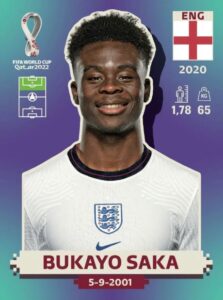 So what of day two of the World Cup? England romped to victory over Iran, Netherlands scored two late goals to see off Senegal and of course Gareth Bale rescued a point for Wales against the USA.
So what of day two of the World Cup? England romped to victory over Iran, Netherlands scored two late goals to see off Senegal and of course Gareth Bale rescued a point for Wales against the USA.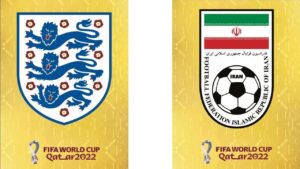 Group B: England v Iran (Khalifa International Stadium, Al Rayyan)
Group B: England v Iran (Khalifa International Stadium, Al Rayyan)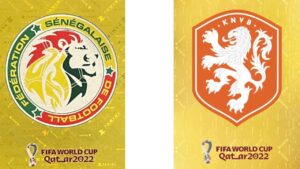 Group A: Senegal v Netherlands (Al Thumama Stadium, Doha)
Group A: Senegal v Netherlands (Al Thumama Stadium, Doha)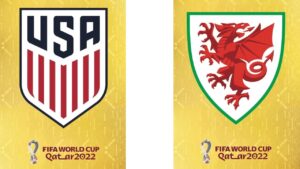 Group B: USA v Wales (Ahmad bin Ali Stadium, Al Rayyan)
Group B: USA v Wales (Ahmad bin Ali Stadium, Al Rayyan) The history of the fierce football rivalry between England and Germany is encapsulated in a single moment – Geoff Hurst’s extra-time shot off the crossbar in the 1966 FIFA World Cup Final and the decision of an infamous Russian linesman to award a goal.
The history of the fierce football rivalry between England and Germany is encapsulated in a single moment – Geoff Hurst’s extra-time shot off the crossbar in the 1966 FIFA World Cup Final and the decision of an infamous Russian linesman to award a goal. A long-awaited labour of love from Andy Wells, director of the brilliant ITV documentary. GET SHIRTY is the definitive, lavishly illustrated account of the untold Admiral story, featuring 250 images of rare kits, unseen behind-the-scenes photos, cult collectables and period catalogues.
A long-awaited labour of love from Andy Wells, director of the brilliant ITV documentary. GET SHIRTY is the definitive, lavishly illustrated account of the untold Admiral story, featuring 250 images of rare kits, unseen behind-the-scenes photos, cult collectables and period catalogues. In the Introduction to In the Heat of the Midday Sun, Steven Scragg puts forward, a theory “that you’re chemically wired to your first World Cups.”
In the Introduction to In the Heat of the Midday Sun, Steven Scragg puts forward, a theory “that you’re chemically wired to your first World Cups.”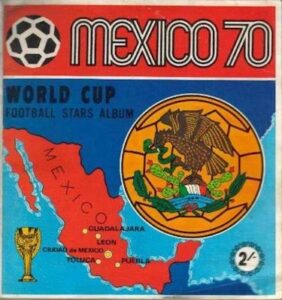

 Don Howe is one of English football’s great coaches, with an unrivalled record at international and club level.
Don Howe is one of English football’s great coaches, with an unrivalled record at international and club level. Winning the World Cup in 1966 was the high watermark in the history of the England national football team. Both before and after The Day, however, the Three Lions have a chequered history in the world’s biggest footballing event. This book seeks to chart a path through that history, stopping for contemplation at various points on the way. It’s a journey full of highs and lows, with memories both golden and tarnished, and an occasional dip into some iconic games and events where England weren’t involved.
Winning the World Cup in 1966 was the high watermark in the history of the England national football team. Both before and after The Day, however, the Three Lions have a chequered history in the world’s biggest footballing event. This book seeks to chart a path through that history, stopping for contemplation at various points on the way. It’s a journey full of highs and lows, with memories both golden and tarnished, and an occasional dip into some iconic games and events where England weren’t involved.